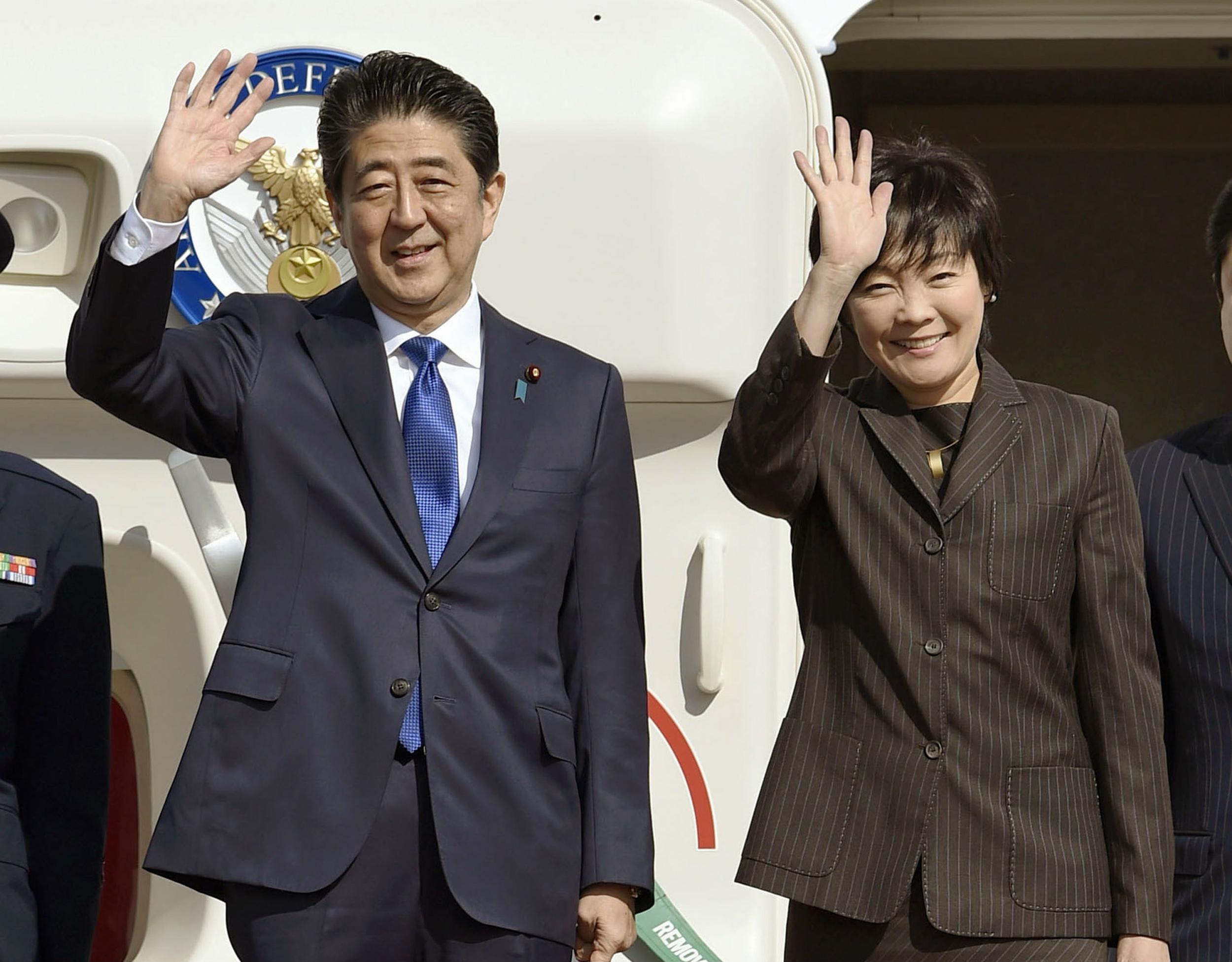Donald Trump must build 'trust' with Japan's Shinzo Abe, first foreign leader to meet with President-elect
It isn't clear if Trump has prepared himself for talks with top US ally

Donald Trump was readying for what appeared to be an ill-planned encounter on Thursday with Prime Minister Shinzo Abe of Japan, the first foreign leader to meet with him face-to-face since his election, amidst concern on the Japanese side that the bonds of trust between the nations may be under threat.
On departing Tokyo, Mr Abe indicated his intention to focus the talks on the future of the “Japan-US alliance”. He is certain to seek clarification from Mr Trump about comments made during the campaign regarding a possible sharp reduction in the numbers of US troops stationed in Japan and even whether it should consider becoming a nuclear power.
“I am very honored to see the President elect ahead of other world leaders,” Mr Abe told reporters before his departure. “The Japan-US alliance is the axis of Japan's diplomacy and security. The alliance becomes alive only when there is trust between us. I would like to build such a trust with Mr Trump.”
That the meeting is happening at all so early in the presidential transition has taken some by surprise. It isn’t clear that Mr Trump will have had any time seriously to prepare for it. In what was hardly a good sign, the US State Department said it had not been asked by anyone in the transition team to provide the president-elect with background papers on US-Japan relations.
Even as Mr Abe was en route to New York there was widespread uncertainty over its likely format. It was set to take place in Trump Tower, the skycraper where Mr Trump has been cocooned for days as his team struggles to make key appointments to his future cabinet and other top government positions.
It may have been concern about the wisdom of Mr Trump meeting the leader of so important a foreign ally that prompted one of his top advisors, Kellyanne Conway, earlier on Thursday to stress what she said would be the casual nature of the encounter.
Speaking on CBS television, she said it was likely to be “much more informal,” given that Mr Trump will not actually be sworn in as US president until 20 January. “Any deeper conversations about policy and the relationship between Japan and the United States will have to wait until after the inauguration,” she said.
Mr Abe’s haste in travelling to America was surely born of the deep unease that Mr Trump’s campaign comments sowed in Japan and the region. They included references to Japan and North Korea not paying the US enough for the protection it gives them and an almost off-hand suggestion that the threat from North Korea means both countries might want to build nuclear arsenals.
“Japan is better if it protects itself against this maniac of North Korea,” Mr Trump told CNN's Anderson Cooper in March. “We are better off frankly if South Korea is going to start protecting itself ... they have to protect themselves or they have to pay us.”
Mr Trump has since insisted that he never actually said that he envisioned Japan and South Korea acquiring nuclear arms, a notion that would flout established doctrine in both the countries and the US. It would also risk unravelling decades of progress on nuclear non-proliferation.
When Mr Trump takes the oath of office he will inherit a foreign deployment configuration that currently has roughly 54,000 Us troops stationed in Japan and 28,500 in South Korea.
The meeting could also see other areas of friction arising between the men. Mr Trump’s election, for instance, has fairly much delivered a death blow to the Trans-Pacific Trade Partnership, TPP, which Japan has strongly favoured.
Negotiated by twelve pacific rim countries, also including China, the TPP was meant to be the linchpin of President Barack Obama’s vaunted tilt towards Asia. That it is now effectively in shreds is also causing leaders in the region to wonder whether Mr Trump will direct his gaze elsewhere.
A top aide to Prime Minster Abe told Reuters that the delegation had been told that some of what Mr Trump articulated on the campaign trail should not be taken too seriously. Certainly that is what Mr Abe will be hoping when it comes to the defence alliance, at least, even if on trade there is unlikely to be much alignment of views.
“Prime Minister Abe will definitely talk about the importance of the Japan-U.S. alliance and that alliance is not only for Japan and the United States, but also for the entire Indo-Pacific region as well as world politics,” said Katsuyuki Kawai, adding that several Trump advisors and Republicans on Capitol Hill had advised him that “we don’t have to take each word that Mr Trump said publicly literally”.
Subscribe to Independent Premium to bookmark this article
Want to bookmark your favourite articles and stories to read or reference later? Start your Independent Premium subscription today.

Join our commenting forum
Join thought-provoking conversations, follow other Independent readers and see their replies